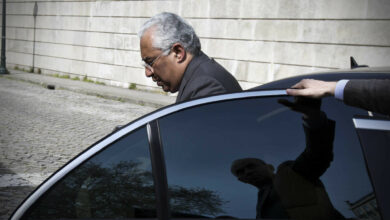A comunidade judaica em Portugal data de mais de dois mil anos e está diretamente relacionada com a história sefardita, uma divisão étnica judaica que representa as comunidades com origem na Península Ibérica.
Recentemente, conversei com David, que há pouco tempo se tornou cidadão português e que, como eu, agora pertence à comunidade luso-canadiana. O seu percurso pelo caminho da cidadania é recente, tendo ouvido falar da lei portuguesa do Direito de Retorno há mais de três anos, durante uma reunião em Toronto. Os seus ascendentes, que faziam parte de uma grande e próspera comunidade da Península Ibérica, tiveram uma difícil decisão de tomar há cerca de 500 anos.
Neste contexto histórico, muitos foram forçados a esconder a sua religião ou foram expulsos de Espanha e de Portugal nos séculos XV e XVI.

Cerca de 500 anos depois, a 11 de abril de 2013, o Parlamento português aprovou por unanimidade uma alteração histórica à “Lei da Nacionalidade” para conceder aos descendentes de judeus expulsos no século XVI o direito de se tornarem cidadãos se pertencerem a uma comunidade sefardita de origem portuguesa, com ligações a Portugal. A lei foi alterada novamente em 2015.
Com a conquista do último Califado na Espanha em 1942, o Decreto de Alhambra, ou Édito de Expulsão, foi emitido em 31 de março de 1492, pelos Reis Católicos Conjuntos de Espanha (Isabel I de Castela e Fernando II de Aragão) ordenando a expulsão de todos os judeus praticantes não convertidos dos reinos de Castela e Aragão, incluindo de todos os seus territórios e possessões. Todos os judeus foram expulsos da Espanha e em 1947 Portugal fez o mesmo.
D. Manuel I, rei de Portugal, não queria uma fuga judaica e “fuga de cérebros” semelhante à que aconteceu em Espanha, na prática bloqueou os portos de saída de Portugal, e posteriormente argumentou que aqueles que ficaram para trás concordaram, por omissão, em se tornar cristãos. Assim, os judeus em Portugal foram forçados a se converter ao catolicismo em 1496 após o decreto e, exceto alguns que conseguiram fugir, tornaram-se cristãos-novos ou convertidos de origem judaica de Portugal.
Nos séculos seguintes, a Inquisição na Espanha e em Portugal continuou a investigar os convertidos e seus descendentes por suspeita de que continuassem a praticar o judaísmo em segredo. Muitos, de facto, continuaram a praticar o judaísmo a portas fechadas, enquanto professavam publicamente o catolicismo; em espanhol e português eram chamados de marranos. Algumas dessas comunidades ainda existem hoje em Portugal.
Muitos foram forçados a uma conversão cristã-nova ou abandonaram as suas casas para buscar refúgio noutras partes da Europa, com muitos a ir para a Holanda e para o Império Otomano e Marrocos. Uma das mais belas sinagogas de Amesterdão é de herança judaica portuguesa.
Durante a Idade dos Descobrimentos, muitos judeus sefarditas foram para as colónias de Portugal, Espanha e Holanda. A sinagoga mais antiga do Canadá é de herança sefardita.
Desde a introdução da Lei da Nacionalidade, Portugal recebeu cerca de 76.000 pedidos após a aprovação da lei que concede a cidadania aos descendentes de judeus sefarditas. No ano passado, Portugal naturalizou 23.000 requerentes ao abrigo da lei judaica de retorno.
Portugal e Espanha aprovaram leis em 2015 que garantem a cidadania aos descendentes de judeus sefarditas, ações que ambos os governos disseram ter como objetivo expiar a expulsão de centenas de milhares de judeus da Península Ibérica durante a Inquisição.
Quando em 2015 o Parlamento português aprovou legislação facilitando a naturalização de descendentes de judeus do século XVI que fugiram por causa de perseguição religiosa, Portugal tornou-se o único país fora de Israel que está a aplicar uma Lei de Retorno Judaica. A moção foi aprovada por unanimidade no Parlamento.
No Livro da Vida em Memória do Holocausto, há judeus com nomes portugueses que foram assassinados pelos nazis, a grande maioria de Amesterdão.
Para quem opta por requerer a cidadania portuguesa, existem alguns requisitos que devem ser cumpridos. Os candidatos devem demonstrar vínculos familiares com a comunidade judaica sefardita, através dos seus sobrenomes, idioma, tradições e ancestrais. Isso pode ser difícil de demonstrar depois de tantos anos desde que a comunidade judaica sefardita foi expulsa da Espanha e de Portugal, mas existem documentos que podem provar a conexão.
Por exemplo, um certificado escrito de uma comunidade sefardita reconhecida em Portugal é crucial para o processo. A lei portuguesa deve reconhecer a aprovação da comunidade judaica de Lisboa e do Porto. Portanto, um certificado confirmando que o requerente tem laços familiares com a comunidade sefardita é considerado uma prova da linhagem sefardita.
Nos casos em que é difícil comprovar a linhagem familiar, é possível contar com a ajuda de um genealogista que pesquisará a árvore genealógica do requerente, em busca de evidências e documentos que comprovem que o requerente possui vínculos familiares com a comunidade sefardita. Exemplos de tais documentos são uma ketuba, um certificado de bar mitzva, um testamento, uma escritura de propriedade, um registo de linhagem familiar, certidões de nascimento e óbito, um registo de cemitério, um registo de circuncisão e registos de membro de sinagoga.
É importante notar que o candidato não é obrigado a demonstrar que é um judeu praticante. Para ter direito à cidadania portuguesa, basta comprovar a existência de vínculo familiar com os judeus expulsos de Espanha e de Portugal durante a expulsão espanhola.
David mencionou que o seu processo durou apenas um ano e meio. Ele teve que provar que era judeu – usou a certidão de casamento de seus pais e foi capaz de rastrear sua linhagem. Ao contrário da lei espanhola, em Portugal ele não é obrigado a aprender português nem há requisito de residência. Sente-se agora ligado ao país e agora que tem cidadania pensa mais em Portugal.
“É maravilhoso que Portugal queira convidar pessoas produtivas para o seu país. O país é muito recetivo e quer que os cidadãos contribuam e permite que eles tenham uma boa prosperidade.” Para David, a lei do retorno é uma declaração que diz “vamos todos ter sucesso juntos… é como uma reunião de família para curar essa fenda”, uma fenda que foi causada há cerca de 500 anos e só agora entra o processo de cura com a reconciliação finalmente a acontecer.
Por Jorge de Paiva
The Right to Return – Sephardi community journey back to Portugal
The Jewish community in Portugal dates back over two thousand years and is directly related to Sephardi history, a Jewish ethnic division that represents communities which originated in the Iberian Peninsula.
Recently, I spoke with David who has just recently become a Portuguese citizen and whom like myself now belongs to the Portuguese Canadian community. His journey to the path of citizenship is recent, having heard of the Portuguese Right of Return law over three years ago while attending a gathering in Toronto. His descendants, who were part of a large and prosperous community in the Iberian Peninsula, had a difficult decision to make some 500 years ago. In this historical context many were forced to covert from their religion or be expelled from Spain and Portugal in the 15th and 16th centuries. Some 500 years later on the 11th of April 2013, the Portuguese parliament unanimously approved a historical amendment to the “Law on Nationality” to grant descendants of Jews who were expelled in the 16th century the right to become citizens if they belong to a Sephardic community of Portuguese origin with ties to Portugal. The law was further amended in 2015. With the conquest of the last Caliphate in Spain in 1942, the Alhambra Decree, or the Edict of Expulsion, was issued on 31 March 1492, by the joint Catholic Monarchs of Spain (Isabella I of Castile and Ferdinand II of Aragon) ordering the expulsion of all unconverted practicing Jews from the Kingdoms of Castile and Aragon, including from all its territories and possessions. All Jews were expelled from Spain and in 1947 Portugal followed suit.

Manuel I, King of Portugal did not want a similar Jewish flight and “brain drain” as happened in Spain, in practice blocking Portugal’s ports of exit, and subsequently reasoned that those who stayed behind agreed to become Christians by default. Thus, the Jews in Portugal were forced to convert to Catholicism in 1496 after the decree and, all but a few who did manage to flee, became Portugal’s Jewish-origin New Christians or conversos. For the next few centuries, the Inquisition in Spain and Portugal continued to investigate the conversos and their descendants on suspicions that they continued to practice Judaism in secret. Many in fact did continue to practice Judaism behind closed doors, while publicly professing to be Catholics; in Spanish and Portuguese these were called Marranos. Some of these communities still exist today in Portugal. Many were forced to New Christian converso or abandoned their homes to seek refuge in other parts of Europe with many going to Holland and to the Ottoman Empire and Morocco. One of the most beautiful synagogues in Amsterdam is of Portuguese Jewish heritage.
During the Age of the Discoveries many Sephardic Jews went to colonies of Portugal, Spain and Holland. The oldest synagogue in Canada is of port Sephardic heritage. Since the introduction of the Law on Nationality, Portugal has received some 76,000 applications after passing the law granting citizenship to descendants of Sephardic Jews. Just last year Portugal naturalized 23,000 applicants under Jewish law of return. Portugal and Spain passed laws in 2015 granting citizenship to the descendants of Sephardic Jews, actions both governments said were intended to atone for the expulsion of hundreds of thousands of Jews from the Iberian Peninsula during the Inquisition.
When in 2015 the Portuguese parliament passed legislation facilitating the naturalization of descendants of 16th-century Jews who fled because of religious persecution, Portugal became the only country outside of Israel that is enforcing a Jewish Law of Return. The motion was approved unanimously in parliament.
Applicants must be able to prove Sephardic surnames in their family tree. Another factor is “the language spoken at home,” a reference which also applies to Ladino (Judeo-Portuguese and/or Judeo-Spanish). Furthermore, applicants must be able to prove an “emotional and traditional connection with the former Portuguese Sephardic Community,” commonly established through a letter from an orthodox rabbi confirming Jewish heritage.
As a result of the Second World War many Jewish people took refuge in Portugal as a neutral country despite Salazar’s strict policy not to provide entry visas into Portugal to Jews. The number of refugees that escaped through Portugal during the war has been estimated in the range of one hundred thousand up to one million, an impressive number considering the size of the country’s population at that time. A heroic figure was that of the Portuguese Consul General in Bordeaux, Sousa Mendes, who alone saved as many as 20,000 Jews by giving them Portuguese identity cards and was subsequently fired and reprimanded by the Salazar government. In the Holocaust Memorial Book of Life, there are Jews with Portuguese names that were murdered by the Nazis, the vast majority from Amsterdam.
For those who choose to apply for Portuguese citizenship, there are a number of requirements which must be met. Applicants must demonstrate family ties to the Sephardi Jewish community, as seen from their family names, language, traditions, and ancestry. This can be difficult to navigate after so many years since the Sephardi Jewish community had been expelled from Spain and Portugal, but there are documents that can prove the connection.
For example, a written certificate from a recognized Sephardi community in Portugal is crucial for the process. The Portuguese law must recognize the approval of the Jewish community of Lisbon and Porto. Therefore, a certificate confirming that the applicant has family ties with the Sephardi community is considered proof of Sephardi lineage.
In cases in which it is difficult to prove family lineage, it is possible to use the assistance of a genealogist who will research the applicant’s family tree, searching for evidence and documents that show that the applicant has family connections with the Sephardi community. Examples of such documents are a ketuba, a bar mitzva certificate, a will, a property deed, a family lineage record, birth and death certificates, a cemetery record, a circumcision record, and synagogue membership records.
It is important to note that an applicant is not required to demonstrate that he or she is a practicing Jew. In order to be eligible for Portuguese citizenship, all that is required is to prove a family connection to the Jews who were expelled from Spain and Portugal during the Spanish expulsion.
David mentioned that his process took only a year and a half. He did have to prove he was Jewish and used his parent’s marriage certificate and was able to trace his lineage. Unlike the Spanish law he is not required to learn Portuguese nor was there a residency requirement. He was now feeling a connection to the country and now that he has citizenship thinks more about Portugal. “It is wonderful that Portugal want to invite productive people to their country. The country is very accepting and wants citizens to contribute and allow them to be prosperous well.” For David, the law of Return is a statement saying “let us all succeed together…its like a family reunion to heal that rift,” a rift that was caused some 500 years ago and only now is the process of healing with reconciliation finally taking place.
By Jorge de Paiva






Redes Sociais - Comentários